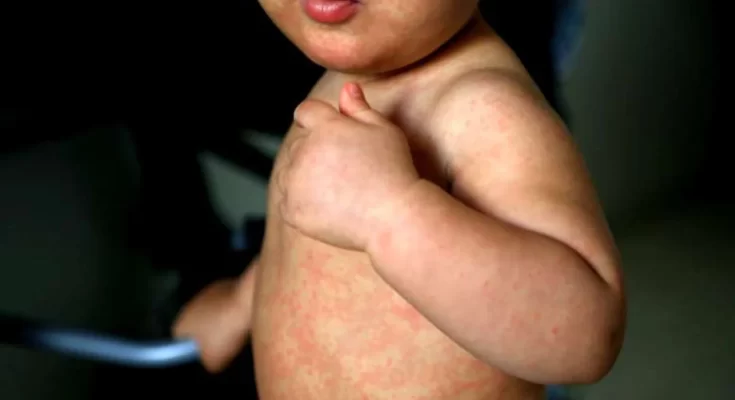Ottawa/CMEDIA: Due to its failure to curb a year-long outbreak, Canada has reportedly lost its measles elimination status after nearly three decades, the Pan American Health Organization (PAHO) said on Monday, a loss that also results in the Americas region losing the status.
Prediction of the PAHO stripping Canada of its elimination status was made last month by the Health experts after the country recorded over 5,000 measles cases in nine of its 10 provinces and one northern territory.
“This represents a setback, but it is also reversible,” said Dr. Jarbas Barbosa, director of the Pan American Health Organization, part of the World Health Organization.
Although the Americas region as a whole has also lost its elimination status, Barbosa said, individual countries keep their status. Belize, Bolivia, Brazil, Mexico, Paraguay and the United States are also facing active outbreaks.
Pointing to lapses in public health outreach and the need to lower barriers to immunizations, Isaac Bogoch, infectious diseases specialist at the Toronto General Hospital said “It’s a wake-up call for Canada.”
When countries attain a 95% vaccination coverage rate, measles is a highly preventable disease.
The level needed for a community to achieve herd immunity and protect those who are unable to receive the vaccine becomes 97% effective after two doses.
Slipping vaccination rates in parts of Canada, Health experts said, enabled the spread of the virus and is due to increasingly skeptical and mistrustful of vaccines since the COVID-19 pandemic.
KFF, the health policy research group, said that losing the status serves as a warning that measles could become endemic, continuously circulating and leading to hospitalizations and deaths, particularly among the most vulnerable children.
The Public Health Agency of Canada in a statement said, “while transmission has slowed recently, the outbreak has persisted for over 12 months, primarily within under-vaccinated communities.”
It said it would focus on improving vaccination coverage, strengthening data sharing, and enabling better overall virus surveillance efforts.
STEP BACKWARD IN TIME
“Loss of elimination status is a step backward and a return to more primitive times, where voices from the Dark Ages continue to attempt to pull us,” said Amesh Adalja, senior scholar at the Johns Hopkins Center for Health Security.
The criteria for a country to be measles-free is to stop the spread of the virus and be free of locally transmitted cases of the same strain for 12 months or greater, in addition to having high-quality surveillance systems.
The United States and Mexico have had significant measles outbreaks this year, with thousands of cases and a handful of deaths.
Other wealthy countries including those in Europe have also been facing declining measles vaccination rates.
Dr. Demetre Daskalakis, a former U.S. Centers for Disease Control and Prevention immunization official said that to retain its elimination status, the US has to prove by Jan 20 that it has halted continuous transmission of the strain that started in Texas last January 20 that kicked off a large outbreak.
The US will also need to prove that ongoing cases are not related to the Texas outbreak.
The office of Canada’s Health Minister Marjorie Michel declined to comment. Manitoba and Ontario aso, two of the hardest-hit Canadian provinces, did not immediately respond to request.





